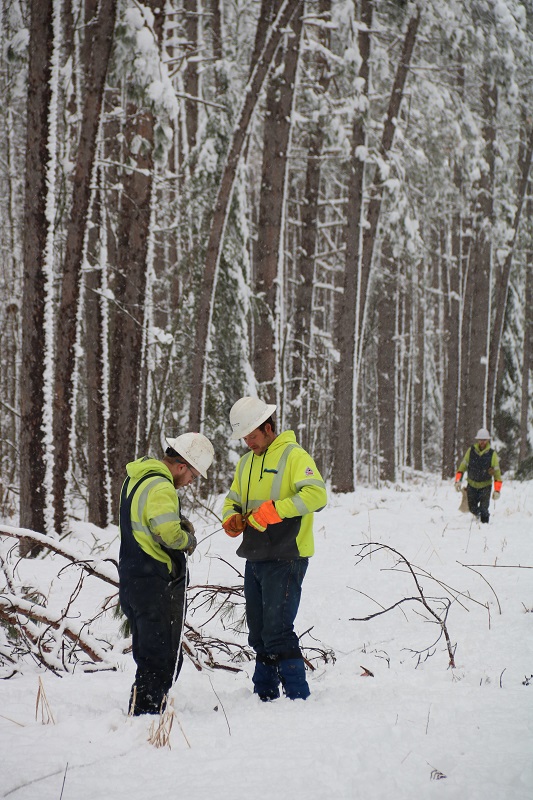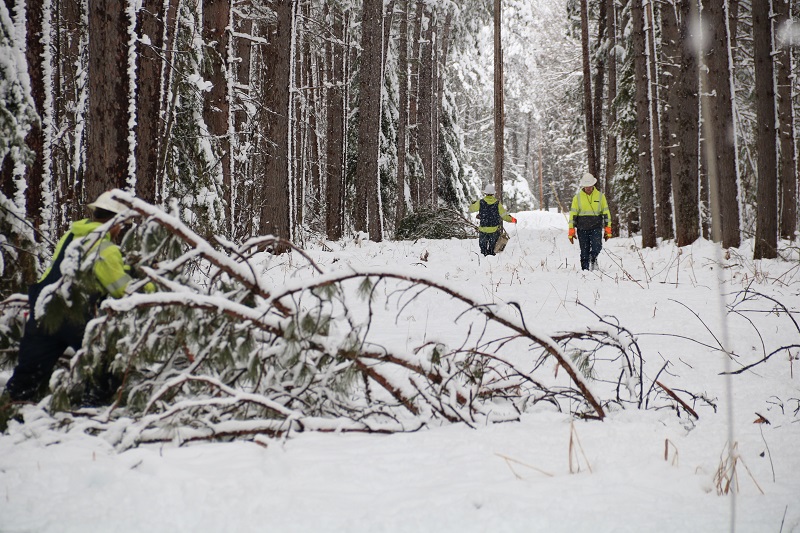The electric system proved resilient as Winter Storm Elliott brought blizzard conditions and subzero temperatures to the Midwest in the days leading up to Christmas. However, at critical moments Great River Energy and its member-owner cooperatives stepped up to keep the system reliable.
Great River Energy and its member-owner cooperatives have designed their systems to remain reliable in extreme winter weather. Despite frigid temperatures settling over Minnesota for several days in late December, the Midwest grid operator, Midcontinent Independent System Operator (MISO), had forecasted stable operations through the holiday weekend.

The situation on the electric system changed rapidly on Dec. 23 as temperatures plummeted, energy demand increased, the supply of natural gas became constrained and challenges emerged on the electric system. Electricity prices spiked as the MISO system load reached 106 gigawatts (GW), surpassing MISO’s estimated peak for the entire winter season of 102 GW.
MISO issued an emergency alert late on Dec. 23 that triggered utilities to deploy “demand response resources” that can immediately reduce demand for electricity. MISO also called for all generation resources to be ready for operation.
Fuel flexibility proves essential
The storm impacted fuel deliveries to some conventional generators that use coal, natural gas or fuel oil. Railroads, trucking and pipelines had to contend with operational constraints. Personnel safety and reliability remained top priorities as travel to some locations became impossible.
Volatile fuel prices caused MISO to take rapid, but effective, measures to keep the electric system stable. Because natural gas pipelines were also experiencing peak demand and operational challenges, Great River Energy’s ability to operate its peaking power plants on fuel oil played a key role in ensuring electric grid reliability during the event.
“With natural gas prices so high, we used the equivalent of over 115 truckloads of fuel oil to generate electricity during the coldest days,” said Great River Energy Generation Strategy and Resiliency Director Nathan Domyahn. “Much of that fuel oil was already stored on-site in preparation for this kind of event. Ultimately, all of Great River Energy’s peaking plants were needed by MISO.” Great River Energy has since replenished its stores of fuel oil to planned winter levels.
All units at the Arrowhead Emergency Generating Station operated on fuel oil to provide local reliability during transmission outages at various times on Dec. 23 and 24 in the Arrowhead region of Minnesota. These transmission outages were caused by extreme winds which felled several trees previously covered in heavy snow.
Crews rise to the challenge
Cook County experienced sustained winds of 60 mph, with gusts as high as 75 mph recorded in Grand Marais Harbor.
John Twiest, CEO/general manager at Arrowhead Cooperative, which serves the region, called the storm one of the worst he has seen.
“I don’t ever recall seeing winds like that, that steady for that long of a period,” Twiest said.
Great River Energy’s transmission employees and vegetation management contract crews worked under extreme conditions with Arrowhead Cooperative crews throughout the night on Dec. 23 with final restoration occurring just after 5 p.m. on Dec. 24.
“We have a very strong portfolio of generation and transmission resources, but our greatest resource by far is our incredible team,” said Great River Energy Vice President and Chief Transmission Officer Priti Patel. “Our system held up well, but these are important experiences for us to learn from and become even more resilient.”

 " data-object-fit="cover">
" data-object-fit="cover">